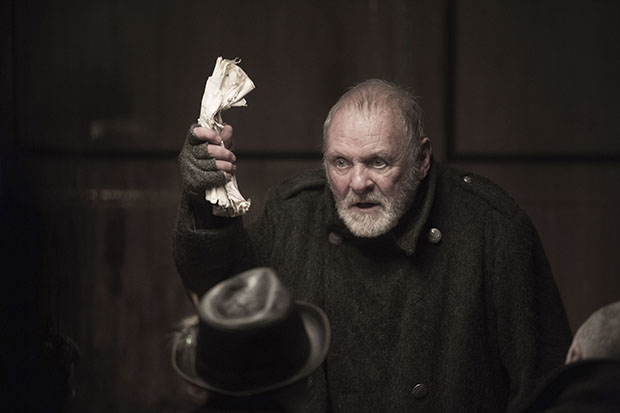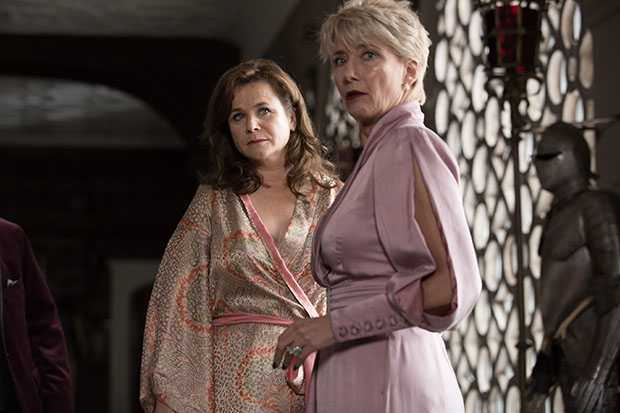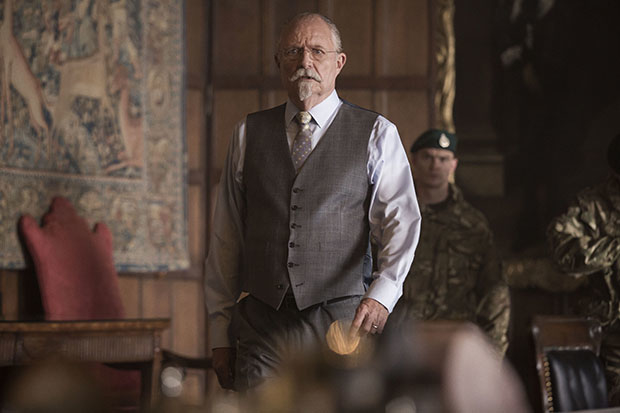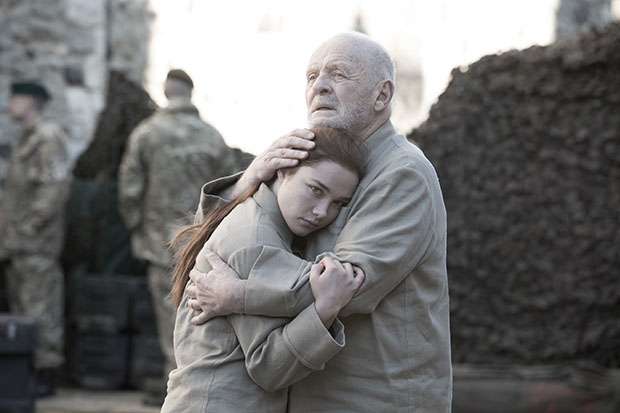Anthony Hopkins Stars in a King Lear for Our Time
Shakespeare’s tragedy of age and loss gets a fresh take from Amazon Prime and the BBC.

(© Ed Miller)
Will the world ever get over its addiction to shouty, egocentric, paternalistic old men? It's a question I ask myself every time I encounter a production of William Shakespeare's King Lear, and that includes the latest film adaptation from Amazon Studios and the BBC, starring Anthony Hopkins. While the film originally ran on BBC2 back in May, Amazon Prime subscribers can now experience it anytime on a multitude of devices. At a brisk 115 minutes (brilliantly shaved down from its usual three hours by director and adaptor Richard Eyre), it's a good introduction to Lear, with all its genius and pitfalls.
This film comes hot on the heels of the underwhelming Royal Shakespeare Company revival starring Antony Sher, but just before Tony winner Glenda Jackson is set to reprise the role on Broadway (she's already played it in London to great acclaim). As we approach year three of President Donald Trump, never has there seemed a better time to revisit the story of a vain old King who foolishly divides his realm amongst his greedy and treacherous children.
Eyre explicitly brings the story into the 21st century from the first panning shot of the London skyline. King Lear (Hopkins) is ruler absolutely over this presumably post-Brexit Britain. He has tired of the day-to-day work of governing, however, and has gathered his children and closest associates in the Tower of London to divide his realm: To his eldest, Goneril (Emma Thompson) goes the North, a disappointing haul for the sour-faced southern snob. His middle daughter, Regan (Emily Watson) is no more pleased with her inheritance: Cornwall.
Lear reserves the most opulent third for his youngest and most favored daughter, Cordelia (Florence Pugh), but when she refuses to flatter her father with empty words, Lear disinherits her and sends her into exile with her new husband, the Prince of France (Chukwudi Iwuji). When the Earl of Kent (Jim Carter) tries to dissuade him, he banishes him as well. Detractors dispatched, Lear prepares to settle into a retirement of drinking and hunting with his retinue of 100 knights. But with divine rights come divine responsibilities; once Lear abrogates them, things go terribly wrong.

(© Ed Miller)
Hopkins delivers a red-faced, irascible, unreasonable Lear — a big man made ever-smaller by his descent into childlike senility. It's not a new take on the character, but Hopkins puts his full muscle as an actor behind the choice and it pays off: The verse is clear, even when growled. Befitting the cut of the script, this Lear proceeds forth like a locomotive over a cliff.
For those who have not yet read Bob Woodward's Fear, Jim Broadbent's appeasing Earl of Gloucester helps us to understand how essential a competent, cowardly administration is to the successful rule of a magnetic chauvinist. His two sons, the illegitimate Edmund (John Macmillan) and the legitimate Edgar (an inexplicably goofy Andrew Scott), form the exciting B-plot of the story. A good Edmund has the power to make you root for him: Why should the world belong to dim-witted children of privilege when we could be ruled by a clever bastard? Sadly, Macmillan is only a serviceable Edmund, getting the job done without adding much to the role.
It doesn't help that he has to compete for MVV (most valuable villain) with Thompson, who makes an impossibly posh and fabulously cruel Goneril. She laughs in the face of male rage, and relishes the cuckolding of her "milk-liver'd" husband (Anthony Calf as a sweater-wearing, teeth-gritting Duke of Albany).

(© Ed Miller)
The infamous blinding scene is where Lear runs the greatest risk of swerving into camp, as it does here, when Cornwall (a staid Tobias Menzies) uses Regan's lacquered fingernail to execute the bloody deed. Afterward, Menzies and Watson gaze hungrily at each other's blood-splattered faces. You can't help but laugh.
Other contemporary flourishes are more effective: A duel is not fought with foils, but with brutal MMA punches and kicks (fight coordination by Mark Epstein). Lear charges across the land in his trusty steed (a Range Rover) until he is forced to walk, eventually finding shelter in a refugee settlement not unlike the Calais jungle.
Fotini Dimou's modern costumes tell us plenty about each character before they even speak. Gloucester is a vision of cloistered London liberalism in his pinstripe suit, while Goneril slays in her Devil Wears Prada getup. When Kent refers to Oswald (an appropriately prissy Christopher Eccleston) as a "three-suited, hundred-pound, filthy, worsted-stocking knave," Oswald happens to be wearing a very preppy three-piece tweed suit.

(© Ed Miller)
Eyre's most daring and memorable choice is the reimagining, later in the film, of Lear as a homeless man picking through trash in a public plaza. As he raves about "burning, scalding, stench, consumption," a woman braces behind her shopping bags and then quickly scurries away with a purse of her lips that silently says, I wish someone would do something about these people. City dwellers go out of their way to avoid such unpleasant encounters with the poor and mentally infirm, never suspecting they were once kings.








